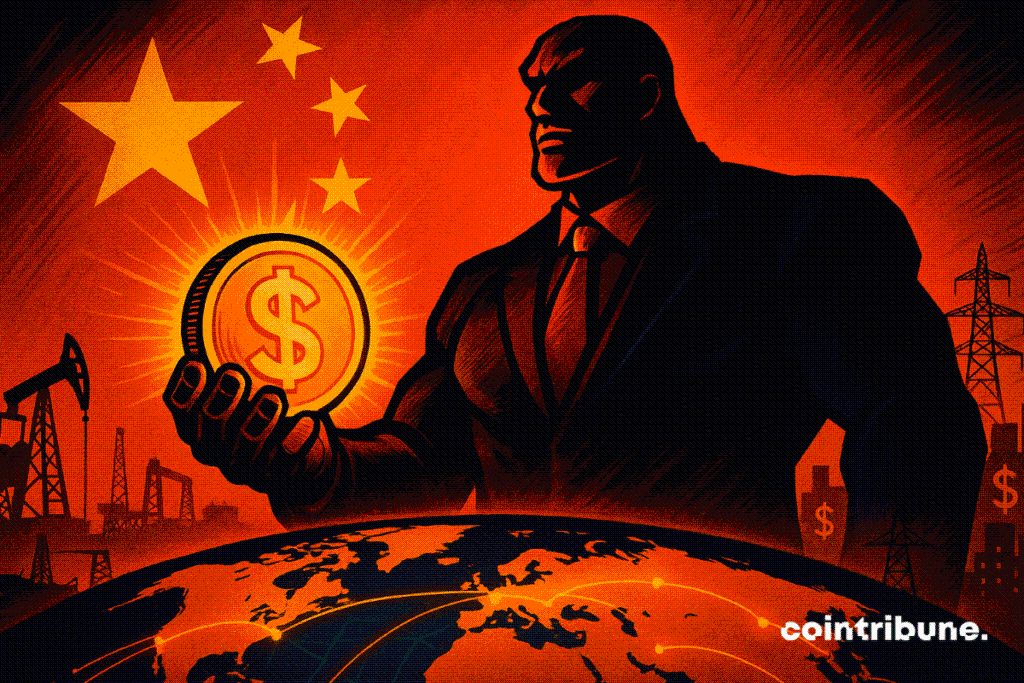China’s Energy Giant Eyes Stablecoins for Cross-Border Transactions
The buzz around stablecoins continues, and now a major Chinese energy company is showing interest in their use for international trade. PetroChina, a subsidiary of China National Petroleum Corporation, is watching developments in Hong Kong closely as it considers the potential of stablecoins for cross-border payments.

In Brief
- PetroChina shows interest in using stablecoins for cross-border oil transactions.
- A digital yuan could integrate further into international energy and payment systems.
PetroChina Signals Interest in Yuan-Backed Stablecoins
Wang Hua, the company’s Chief Financial Officer and Board Secretary, highlighted the interest during PetroChina’s half-year financial results, signaling that the firm may explore using digital currencies for settlement purposes.
The move reflects a broader effort to promote the international use of the yuan. Historically, oil trade has been dominated by the U.S. dollar . Adopting a yuan-backed stablecoin could allow China to settle transactions more efficiently in its own currency, supporting the yuan’s growing role in global energy markets.
Hong Kong’s Licensing Framework
Hong Kong recently implemented a new stablecoin ordinance, effective August 1, which sets rules for digital currency issuance and regulation.
Meanwhile, the Hong Kong Monetary Authority (HKMA) has introduced a licensing framework that would apply to institutions planning to issue or support stablecoins. Companies that consider themselves ready can submit applications early, with a target date of September 30, 2025 , for priority review.
Several Chinese firms, including JD.com and Ant Group, have expressed interest in issuing yuan-backed digital tokens and may participate once licensing is available.
Yuan-Backed Digital Currency in Oil Trade
Wang Hua’s statement could be interpreted as indicating PetroChina’s potential interest in becoming a stablecoin issuer. If a major energy company such as PetroChina were to adopt stablecoins for cross-border transactions, it could make international payment settlements more efficient.
China has been settling an increasing portion of its energy trade in yuan, a system sometimes referred to as the “petro-yuan.” Trade with Russia, for example, relied heavily on local currencies such as the yuan and the rouble, with 2024 seeing the majority of transactions conducted in these currencies.
Using a digital version of the yuan for such trades could further integrate it into international energy markets and support the expansion of digital payments.
Stablecoins Under Scrutiny as China Considers Future Use
Despite the growing interest in stablecoins, Chinese regulators have taken a cautious approach:
- In early August, renminbi-backed stablecoins were tested to explore ways to reduce reliance on the U.S. dollar.
- Shortly afterward, Chinese regulators asked major domestic brokers to halt research promoting stablecoins.
- The move aims to curb growing interest in the digital currency among local investors .
Still, China has not abandoned the idea entirely. According to Reuters, the State Council is expected to discuss expanding the use of yuan-backed stablecoins at the upcoming Shanghai Cooperation Organization (SCO) summit. Such a move could provide clarity on the regulatory framework for this digital asset and its potential role in cross-border trade.
Disclaimer: The content of this article solely reflects the author's opinion and does not represent the platform in any capacity. This article is not intended to serve as a reference for making investment decisions.
You may also like
Japan Post Bank’s 2026 Token Push Aims to Revive Dormant Savings with Digital Speed
- Japan Post Bank plans to launch DCJPY in 2026 to modernize services and attract younger customers. - The token enables instant savings conversion to 1-yen redeemable tokens, accelerating asset settlement from days to near-instant. - DeCurret DCP collaborates with Japanese governments to use DCJPY for subsidies, expanding its utility in public finance. - Japan's $1.29T bank aims to rejuvenate dormant accounts with 3-5% returns on tokenized real estate/bond investments. - SBI Group's Chainlink partnership

Solana News Today: Meme Meets Mainstream: 3 Crypto Projects Redefining Utility in 2025
- Three 2025 meme coins—Bonk (BONK), Dogwifhat (WIF), and Remittix (RTX)—attract investor attention for triple-digit growth potential amid crypto market shifts. - BONK gains institutional backing via $25M Safety Shot investment, while WIF shows bullish triangle patterns and $2 price targets despite 10.65% weekly declines. - RTX distinguishes itself with real-world PayFi utility, enabling crypto-to-fiat conversions and hitting $20M presale milestones ahead of September 15 beta launch. - The trio reflects 20

Bitcoin Miners: 3.6x Leveraged Winners in the ETF-Driven BTC Boom
- 2025 Bitcoin bull market driven by institutional adoption and spot ETFs, boosting BTC price from $45k to $120k. - Miners outperformed BTC by 3.6x leverage via efficiency gains, institutional capital shifts, and network hashrate growth to 31.5% U.S. dominance. - Institutional demand created 18% circulating supply ownership, reducing exchange-held BTC to 7-year low while regulatory clarity cut volatility to 32%. - Miners diversified into AI/HPC infrastructure (e.g., TeraWulf's $1.4B Google partnership) to

Capital Flight from BTC to ETH: A Whale-Driven Rebalance and the Rise of Altcoin Season
- Institutional and whale capital is shifting from Bitcoin to Ethereum due to Ethereum’s structural advantages, regulatory clarity, and 3.8–6% staking yields. - Whale-driven BTC-to-ETH transfers, including a $2.59B move in Q2 2025, have reduced Ethereum’s circulating supply by 9.31% and boosted institutional adoption. - Ethereum’s Pectra/Dencun upgrades, 90% lower gas fees, and 63% DeFi TVL dominance are fueling altcoin growth and a new “halo effect” in the crypto ecosystem. - Technical indicators and whal

